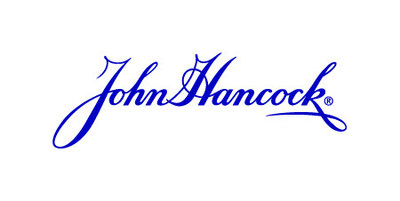New John Hancock Retirement report reveals surprising contradictions in how pandemic is affecting employees
On January 11, 2022, John Hancock Retirement released its eighth annual report highlighting the financial stress experienced by employees. Despite nearly 75% reporting financial stress, 66% of participants stated that access to financial wellness programs would increase their job retention. The report indicates a paradox; while employees feel financially confident, they also seek guidance for money management, with 89% emphasizing the importance of such programs. Key findings include that 71% have faced stress over the past year, and 68% are particularly concerned about healthcare costs in retirement.
- 66% of employees are more likely to stay with employers offering financial wellness programs.
- Participants' financial confidence is at its highest since 2018.
- 80% of respondents believe employer-sponsored retirement plans are a critical benefit.
- Nearly 75% of respondents report feeling financial stress.
- Only 37% have a comprehensive financial plan for retirement.
Insights
Analyzing...
TSX/NYSE/PSE: MFC SEHK: 945
- Pandemic-era savings have boosted employees' confidence in their financial situations and expectations for the future, even while a rising number—nearly
75% —report feeling stressed in the past year. - Employees are eager for financial guidance and solutions from their employer.
66% said that having access to financial wellness programs would make them more likely to stay with their employer.
BOSTON, Jan. 11, 2022 /PRNewswire/ - John Hancock Retirement, a company of Manulife Investment Management, today announced the results of its Stress, Finances, and Well-Being report, the eighth annual survey of its retirement plan participants. As the effects of the pandemic have altered the American workforce in ways that continue to play out, this report is a snapshot of employees' feelings about their finances and well-being as they continue to manage the impact of a lingering pandemic.
This year's report showed participants' confidence in their personal financial situation is at its highest level since 2018; however, they also responded that they're seeking help in making money management decisions and showing a desire for guidance and solutions as pandemic fatigue has evolved into decision-making fatigue. This represents a chance for employers, financial professionals, and retirement providers to help retirement savers build a solid foundation for the future.
The value in employer-sponsored retirement plans is broadly acknowledged, with almost all respondents stating that it's a critical benefit, including
"Uncertain economic times often cause people to adopt positive financial behaviors in the short term. This fact, combined with the unique situation of COVID-19 greatly reducing the opportunities to spend money, found many retirement savers in a stronger financial situation than they were prepandemic," said Sue Reibel, CEO, John Hancock Retirement. "There's a clear opportunity for employers to keep this momentum going by offering support to employees to help them make investment decisions with confidence, ultimately reducing their financial stress."
In alignment with participants' confidence in their personal financial situations, the survey found reduced levels of worry compared with last year's report. This may be correlated to pandemic-related savings—lower commuting, entertainment, leisure, and travel expenses—which has allowed respondents to put that money to work in other areas of their financial lives. However, the 2021 report found that three in four respondents exhibit financial stress at least at a moderate level. Financial stress continues to be prevalent at work as well, with
"The takeaway of this year's report is the paradox that we have actually seen improved savings and confidence in personal financial situations in an ongoing pandemic. However, the positive behaviors resulting in this trend have not been fully adopted by participants," said Lynda Abend, head of strategy and transformation, John Hancock Retirement. "This environment presents a unique opportunity to help people bridge their short-term improvements into actions that will bring them sustainable, long-term financial health."
Openness to assistance is an opportunity to help
The opportunity for employers to help their workforce secure their financial future is a potential mitigating factor for the Great Resignation and a means to improve recruitment and retention strategies. Further, the report found that
Beyond those benefits, the report found that roughly two-thirds of respondents expressed at least moderate interest in receiving recommendations on Social Security strategies and retirement income forecasts from their employers. And
With only
Additional key findings from the report
71% of participants have experienced stress, depression, or loneliness during the past year.- A majority agree that financial concerns add stress to their life; more than
40% reported having had stress often/all of the time during the last year. - The report found that retirement planning (cited by
47% ), paying off debt (43% ), and ensuring savings are invested wisely (37% ) were the top priorities for participants in the coming months. - Approximately half of the respondents feel they'll retire around the time they planned;
20% are unsure when they'll be able to retire. - When it comes to retirement expenses, employees are most worried about healthcare cost, with
68% indicating that it's at least somewhat concerning.
The full survey as well as more information about John Hancock Retirement are available online.
About John Hancock Retirement
John Hancock Retirement is the U.S. retirement business of Manulife Investment Management. For nearly 50 years, we've helped people plan and invest for retirement; today, we're one of the largest full-service providers in the United States.1 We take a hands-on consultative approach based on the idea that no two plans—and no two plan participants—are exactly alike. We partner with plan sponsors, financial professionals, and third-party administrators to ensure that every plan is personal to the participant and delivers results.1
As of 9/30/21, John Hancock serviced over 52,000 retirement plans with over 3.1 million participants and over
1 "2021 Defined Contribution Recordkeeper Survey," PLANSPONSOR, 2021. 2 As of 9/30/21, John Hancock Life Insurance Company (U.S.A.) supported 48,549 plans, 1,605,083 participants, and
About Manulife Investment Management
Manulife Investment Management is the global brand for the global wealth and asset management segment of Manulife Financial Corporation. We draw on more than a century of financial stewardship and the full resources of our parent company to serve individuals, institutions, and retirement plan members worldwide. Headquartered in Toronto, our leading capabilities in public and private markets are strengthened by an investment footprint that spans 18 geographies. We complement these capabilities by providing access to a network of unaffiliated asset managers from around the world. We're committed to investing responsibly across our businesses. We develop innovative global frameworks for sustainable investing, collaboratively engage with companies in our securities portfolios, and maintain a high standard of stewardship where we own and operate assets, and we believe in supporting financial well-being through our workplace retirement plans. Today, plan sponsors around the world rely on our retirement plan administration and investment expertise to help their employees plan for, save for, and live a better retirement.
As of 9/30/21, Manulife Investment Management's AUMA, including assets managed for Manulife's other segments, totaled CAD
Methodology
In August 2021, John Hancock commissioned our eighth annual financial stress survey with the respected research firm Greenwald Research. An online survey of 1,162 workers was conducted between 8/4/21 and 9/3/21 to learn more about individual stress levels, their causes and effects, and strategies for relief.
This information is general in nature and is not intended to constitute legal or investment advice. This report presents the results of research conducted by Greenwald & Associates on behalf of John Hancock. Greenwald Research and John Hancock are not affiliated, and neither is responsible for the liabilities of the other.
The objectives of this study were to (i) quantify the financial situation and level of financial stress of John Hancock plan participants and plan participants outside of John Hancock; (ii) determine the key triggers of financial stress; (iii) understand the extent to which actions, including actual financial behavior and planning activity, ameliorate stress; and (iv) assess retirement preparation and readiness. It was an online survey with an average length of approximately 19 minutes per respondent. All statistical testing is done at 0.95 and 0.99 significance levels. The maximum margin of sampling error at the
John Hancock Retirement Plan Services LLC provides administrative and/or recordkeeping services to sponsors or administrators of retirement plans through an open-architecture platform. John Hancock Trust Company LLC provides trust and custodial services to such plans.
Group annuity contracts and recordkeeping agreements are issued by John Hancock Life Insurance Company (U.S.A.), Boston, MA (not licensed in New York), and John Hancock Life Insurance Company of New York, Valhalla, New York. Product features and availability may differ by state. All entities do business under certain instances using the John Hancock brand name.
Each entity makes available a platform of investment alternatives to sponsors or administrators of retirement plans without regard to the individualized needs of any plan. Unless otherwise specifically stated in writing, each such company does not, and is not undertaking to, provide impartial investment advice or give advice in a fiduciary capacity. Securities are offered through John Hancock Distributors LLC, member FINRA, SIPC.
NOT FDIC INSURED. MAY LOSE VALUE. NOT BANK GUARANTEED.
© 2022 John Hancock. All rights reserved.
![]() View original content to download multimedia:https://www.prnewswire.com/news-releases/new-john-hancock-retirement-report-reveals-surprising-contradictions-in-how-pandemic-is-affecting-employees-301458384.html
View original content to download multimedia:https://www.prnewswire.com/news-releases/new-john-hancock-retirement-report-reveals-surprising-contradictions-in-how-pandemic-is-affecting-employees-301458384.html
SOURCE John Hancock Retirement








